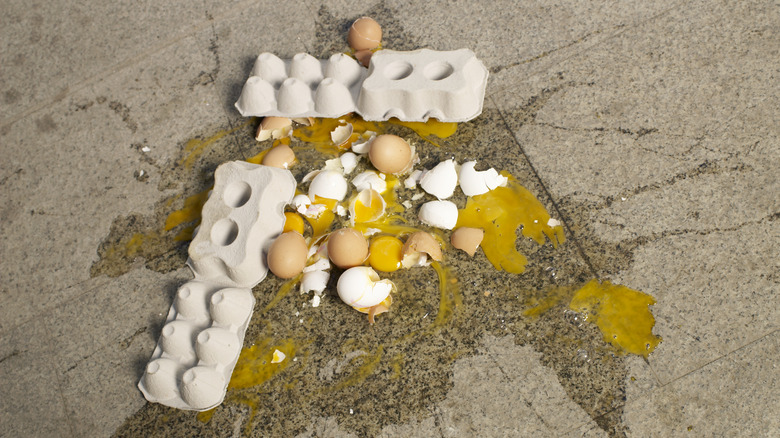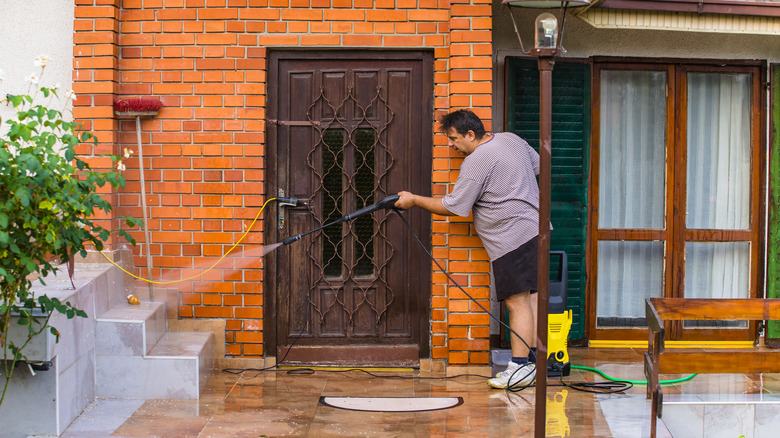How To Handle Cleaning An Egged House After A Halloween Prank
Every Halloween, you can spot houses with adorable DIY ghost decorations, spooky, no-carve pumpkins, and splattered eggs. Pranks have been a part of Halloween since before it was even called Halloween, and egging is the annoying prank that just won't quit. If you're unlucky enough to be egged this year, time is of the essence. The sooner you rinse the egg off, the easier it will be to get rid of it. Thankfully, as far as cleanup is concerned, it may not be as difficult as you think. Eggs have a high moisture content, so as long as you start cleaning up the mess before it dries, it should slide right off with water.
Cracked eggs are gooey, slimy, and stinky. But beyond that, they can damage or break down surfaces, including house paint and shingles. Broken egg shells can also cause scratches. That's why this "prank" is more serious than it might seem and can even lead to criminal charges. So, it's important to learn how to clean this mess up right away in case your home falls victim to yucky egg yolks.
The do's and don'ts of cleaning up an egged house
A hose or pressure washer is your hero here. To avoid the egg sticking to the surface as it rinses downward, spray the area below the egg first. Then spray above the egg, moving from side to side to dislodge the mess without causing it to splatter. Then you can go back and wipe the area with soapy water to prevent staining or smells.
If the egg has already started to dry, spraying with water can help rehydrate and loosen it before you apply a cleaning solution. Options include laundry detergent (about ¼ cup mixed with warm water), white vinegar diluted with warm water, or an alkaline-based cleaner such as Formula 409 from Walmart or the all-purpose cleaner from Simple Green. You can soak a towel in the cleaning solution and then leave it on the area for about 15 minutes before spraying with water again. Check that your cleaning solution is safe for your house's exterior materials before use. You may be inclined to scrub your house to get all the egg off, but be careful doing so until you've removed all the solid bits, or you may rub in the egg shells and scratch your home's surface. Also, take precautions when pressure washing your house. Stick to low pressure, as high pressure runs the risk of blasting the egg to other areas. Lastly, don't use hot water. You could end up dealing with cooked eggs instead, which are even more corrosive than raw eggs.

